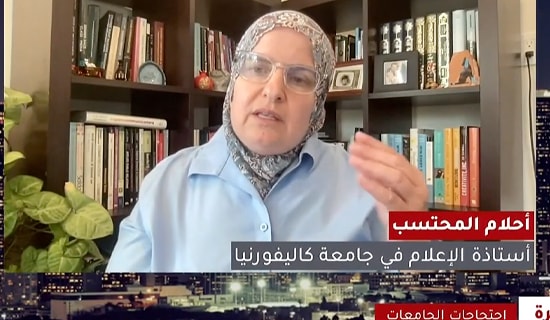
Liberal Saudi juornalist, Turki Hamad was interviewed on Dubai TV by another well known Saudi journalist, Daoud Al-Shiriyan. The interview revolved around the terror attacks in Saudi Arabia in recent months. Following are excerpts:
Hamad: The (Saudi) state and the extremists belong to the same discourse. The extremists may have taken this discourse to its extreme, while the state's discourse is balanced - but it's the same discourse.
Shiriyan It is as if it confronts itself...
Hamad: That is why, in my opinion, there is a kind of competition - and I don't want to say "conflict" - there is a kind of competition in the society as to whose interpretation of the discourse is correct. These extremists present themselves as having the correct, pure discourse. At the same time, the state presents itself as adopting mainstream discourse. There is a kind of competition over the society, and the fact that both belong to the same discourse makes the issue sensitive.
When we talk of extremists, we are talking, as I said, about a single discourse - whether theirs or the state's. The state's discourse made it easier (for the extremists)... What made it easy for them? All the institutions of society use the same discourse, whether in schools, universities, mosques, extra-curricular activities, summer camps, centers for memorizing the Koran, and so on. All these institutions facilitated the spreading of this discourse and made it easier for anyone offering an extreme interpretation. All this, of course… Who provided these means? The state provided them. The state did so in order to spread what? The Islamic discourse. But the extremists have taken advantage of this. So the answer is yes, they are a product of this environment, no doubt.
The question that arises is where the funding comes from. You may say to me, for example, that it comes from invisible hands overseas. I don't think it's from overseas. They have sympathizers inside Saudi Arabia.
Shiriyan: Does the funding also come from within?
Hamad: I'm certain of that. I'm certain there is (Saudi) funding. Let me give you an example. There are charities on which restrictions have been imposed, but not on all of them. There are others, which receive large donations. There is no supervision, nothing. Where does this money go?
Terror as a phenomenon has a certain background, it develops in a certain environment, it has certain roots, it has certain causes.
Shiriyan: What are the causes of terror in Saudi Arabia?
Hamad:That is why I cannot eradicate terror if I don't cut its roots, but merely remove what's on the surface. For example, if I get ill I take aspirin and it eases the pain, but it does not get rid of the illness.
Shiriyan: What are the roots?
Hamad: The roots are many. For any phenomenon, I cannot name just one reason, as in a certain Arab mentality, that attributes everything to one cause. There are cultural reasons, There are economic reasons, There are social reasons. There are a number of reasons that together generate the outcome. But I believe that the main cause is cultural, and I am referring to the one-dimensional culture, the eradicating culture, preached by many in our society, via official institutions, which is the problem.












